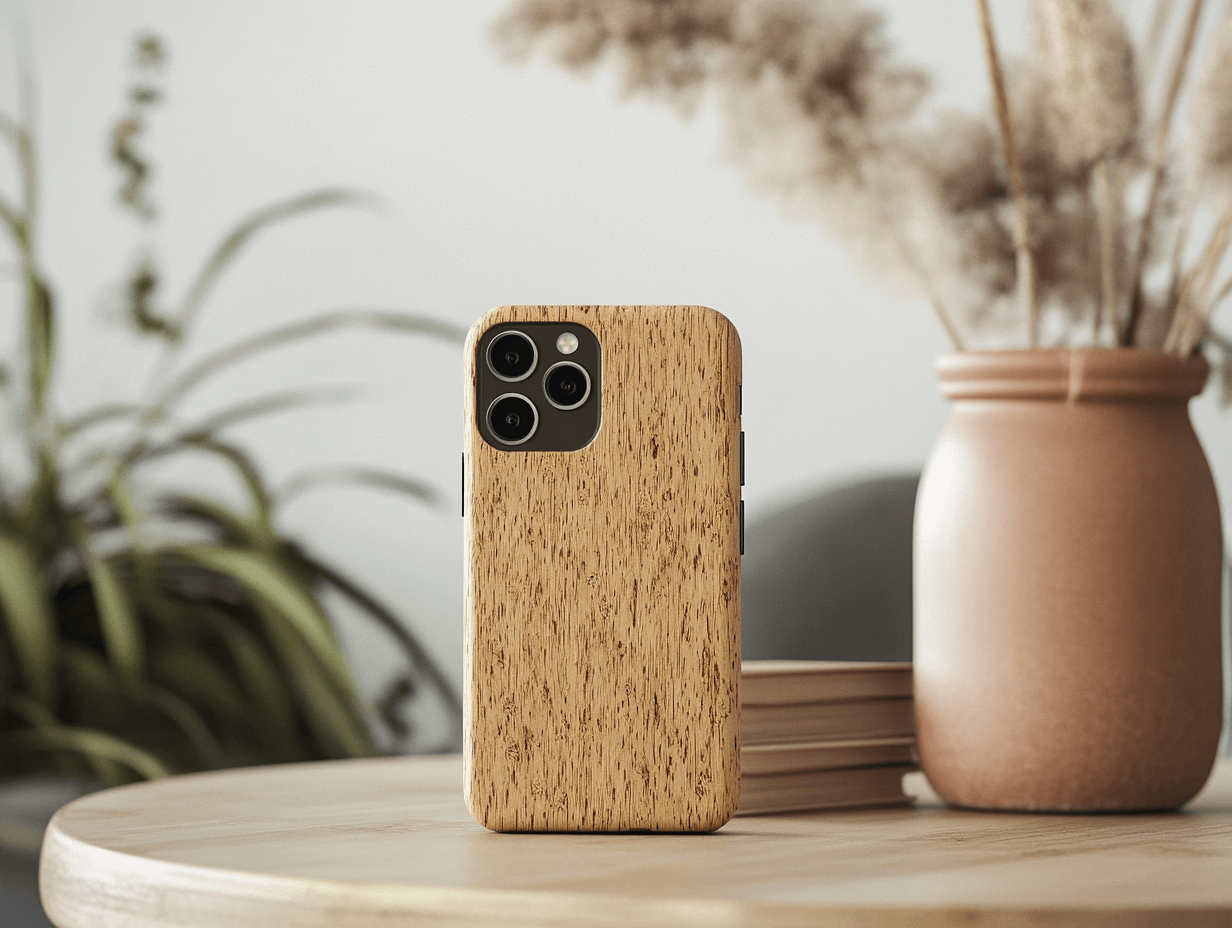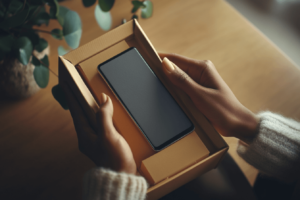The rise of customization in consumer products
The demand for personalized products has skyrocketed in recent years, driven by consumers’ desire to own items that reflect their individual tastes and personalities. This trend spans across various industries, including fashion, tech, and home décor. People no longer want generic items; they are looking for products that feel unique and special. Customization allows brands to cater to these preferences, offering products that are tailored to the individual’s specifications.
In particular, the custom cases market has experienced a significant surge, as people are more willing to invest in phone, laptop, and tablet cases that are not only functional but also a representation of their personal style. Advances in technology, like 3D printing and sophisticated design tools, have made personalization more accessible and affordable than ever before, further fueling this market growth.
The demand for personalized items
As consumers become more discerning and less willing to settle for mass-produced goods, the desire for personalization has become a key factor driving market trends. In the realm of tech accessories, such as custom phone and laptop cases, people are gravitating towards products that give them a sense of individuality. Customization allows customers to put their own spin on a product, whether it’s through the use of vibrant colors, custom artwork, or personalized text.
In fact, many consumers today are motivated by the idea of owning a product that is “one of a kind.” Customization gives people the power to make a statement, and it’s especially appealing in an age where social media encourages individuals to share their personal style. As a result, companies offering customizable cases are seeing a substantial increase in sales, as more and more people seek out ways to express themselves through their accessories.
The influence of technology on customization
Technology has played a crucial role in the expansion of the custom cases market. Tools like 3D printing, laser engraving, and digital design platforms have made it easier for both consumers and manufacturers to create intricate, personalized designs. With these tools, even small businesses can offer custom-made cases without the need for large-scale production facilities. Additionally, the rise of online platforms that allow customers to design their own cases has made the process of personalization more accessible and streamlined.
Furthermore, augmented reality (AR) has begun to make its mark in the industry, allowing consumers to virtually « try on » different designs before committing to a purchase. This technology offers a new level of interactivity, making the customization experience more engaging and personalized. As these technologies continue to evolve, the possibilities for custom cases are boundless.
Understanding custom cases: what are they?
Custom cases are designed to protect devices while also reflecting the owner’s personal preferences. They are available for a wide range of tech gadgets, including smartphones, tablets, laptops, and even gaming consoles. These cases serve both a practical and aesthetic purpose: they offer protection against scratches, drops, and other damages while adding a unique touch to the device.
The customization options available for these cases are vast, with various styles, colors, patterns, and materials to choose from. Customers can opt for a minimalist design, bold patterns, or even incorporate their favorite artwork or photos into the case. This flexibility allows consumers to create a product that is as functional as it is stylish, elevating the personal value of the item.
Types of custom cases available
Custom cases come in many different types, each offering varying levels of protection and design options. The most common types of custom cases include hard cases, soft cases, wallet cases, and hybrid cases. Hard cases are typically made of plastic or polycarbonate and provide robust protection against impact. Soft cases, on the other hand, are often made of silicone or rubber, offering flexibility and shock absorption.
Wallet cases combine the functionality of a phone case with the practicality of a wallet, providing space for cards and cash. Hybrid cases blend the features of both hard and soft cases, offering a balanced combination of durability and flexibility. Customization options for each type may vary, but all of them offer consumers the chance to personalize their cases with unique colors, designs, and text.
Key features and materials of custom cases
The materials used in custom cases play a crucial role in their functionality and aesthetic appeal. Common materials include plastic, silicone, leather, and wood. Each material offers different advantages: plastic and silicone are lightweight and provide excellent protection, while leather cases give a sophisticated and luxurious look. Wooden cases, which are often custom engraved, offer a natural, eco-friendly alternative for those seeking something unique.
In terms of features, custom cases can be designed with additional elements such as built-in stands, cardholders, or even waterproofing. The customization process allows users to prioritize both style and functionality, ensuring that the case is not only a reflection of their personality but also a practical accessory for everyday use.
Personalization trends in the custom case market
Over the past few years, several key trends have emerged in the custom case market, largely driven by consumers’ growing desire for personalization. The rise of customization has led to a surge in creative design options, with people increasingly opting for bold, eye-catching designs. Some of the most popular trends include incorporating initials, names, or favorite quotes on cases, allowing users to make the case uniquely theirs.
In addition to text-based personalization, many consumers are opting for custom cases featuring photographs, artwork, or other images that reflect their interests and passions. Whether it’s a favorite pet, a beloved vacation spot, or a custom-designed graphic, these personalized touches create a deeper connection between the owner and their device. This shift towards personal expression is transforming custom cases from simple accessories into meaningful, personal artifacts.
Popular design choices and themes
When it comes to design, the possibilities for custom cases are virtually limitless. Some of the most popular design choices include minimalist aesthetics, where simple patterns or solid colors dominate, as well as more elaborate designs featuring intricate graphics, artwork, or images. Customers are also gravitating towards themes that represent their hobbies, such as music, sports, or travel.
Furthermore, as sustainability becomes an increasingly important factor in consumer choices, eco-conscious custom cases made from sustainable materials like recycled plastic or bamboo are gaining traction. Custom cases are no longer just about personal style; they’re also about making a statement on environmental responsibility.
The role of personalization in brand identity
For businesses, offering customizable cases has proven to be a powerful tool for building brand identity. Companies that allow customers to personalize their products not only provide a unique experience but also strengthen their brand’s connection with consumers. The ability to design and personalize products fosters customer loyalty, as people feel more attached to items that they’ve had a hand in creating.
Many companies have embraced this trend by offering branded custom cases, allowing customers to showcase their support for a brand while also making the product their own. This approach helps create a sense of community and encourages repeat business, as customers are more likely to return to a brand that allows them to express themselves through customization.

The benefits of custom cases for consumers
Tailored protection for devices is one of the most significant benefits of custom cases. By selecting a case that fits their specific needs, consumers can ensure that their devices are well-protected from drops, scratches, and other forms of damage. A well-designed custom case can provide a perfect balance of style and functionality, offering superior protection without compromising on aesthetics.
Custom cases also allow users to reflect their personal style and identity, making their devices stand out from the crowd. In a world where technology is ubiquitous, having a case that expresses individuality can make a big difference. Whether it’s through bold designs, personalized text, or custom artwork, custom cases give consumers a chance to turn an everyday item into a personal statement.
How customization is reshaping the business landscape
The rise of customizable products, particularly in the tech accessory sector, is reshaping the business landscape. Traditional case manufacturers have had to adapt by incorporating personalization options into their product lines, while new businesses have emerged that specialize solely in custom cases. This shift in focus has allowed small businesses to carve out a niche in the market, offering unique, high-quality custom cases to meet the growing demand.
Customization has also changed the way companies interact with their customers. By offering personalized products, brands can build stronger relationships with their audience, increasing customer satisfaction and loyalty. Additionally, the shift towards online platforms has enabled businesses to reach a global customer base, making it easier than ever for consumers to design and order custom cases from the comfort of their homes.
The future of custom cases and personalization
Looking ahead, the custom case market is poised for further innovation and growth. Advancements in technologies like 3D printing and augmented reality will continue to enhance the customization experience, offering consumers even more ways to personalize their products. Additionally, sustainability will likely play an increasingly important role, with eco-friendly materials and manufacturing processes becoming more prominent.
As personalization becomes more ingrained in consumer culture, the custom cases market will continue to evolve, offering new opportunities for both consumers and businesses alike. With endless design possibilities and a focus on individuality, custom cases are undoubtedly here to stay, and their impact on the market will only grow stronger.








